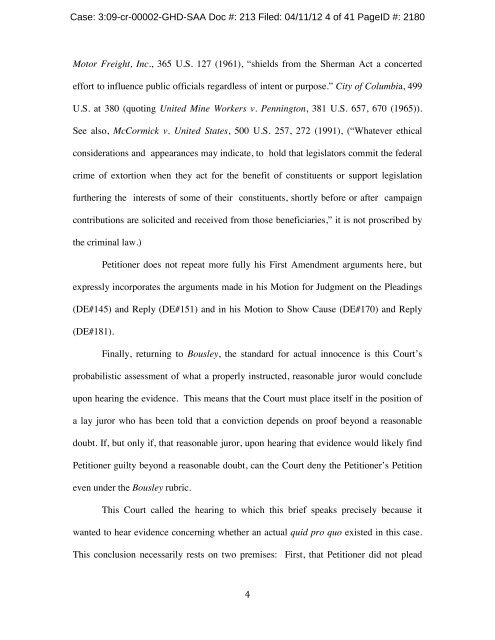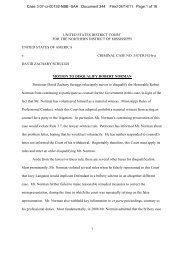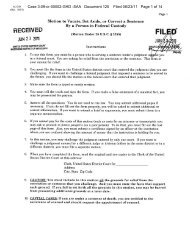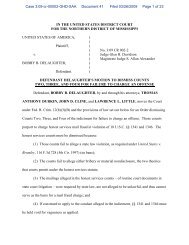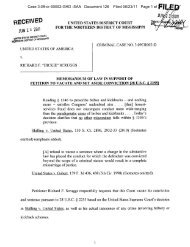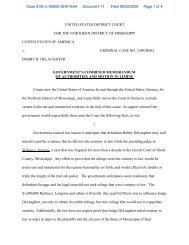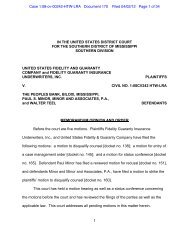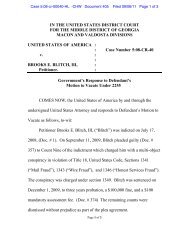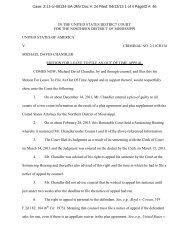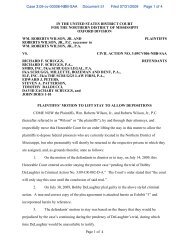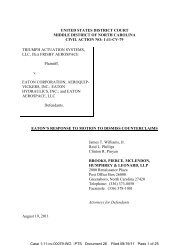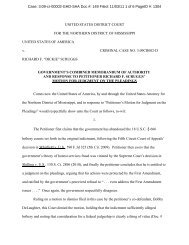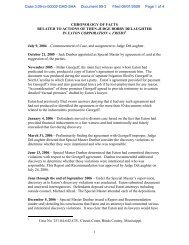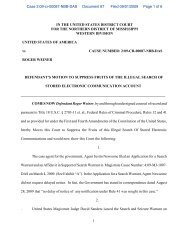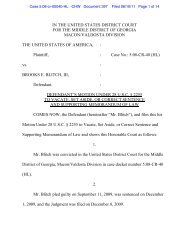Scruggs proposed findings - NMissCommentor
Scruggs proposed findings - NMissCommentor
Scruggs proposed findings - NMissCommentor
You also want an ePaper? Increase the reach of your titles
YUMPU automatically turns print PDFs into web optimized ePapers that Google loves.
!aaassseee::: 333:::000999---cccrrr---000000000000222---GGGHHHDDD---SSSAAAAAA DDDoooccc ###::: 222111333 FFFiiillleeeddd::: 000444///111111///111222 444 ooofff 444111 PPPaaagggeeeIIIDDD ###::: 222111888000<br />
Motor Freight, Inc., 365 U.S. 127 (1961), “shields from the Sherman Act a concerted<br />
effort to influence public officials regardless of intent or purpose.” City of Columbia, 499<br />
U.S. at 380 (quoting United Mine Workers v. Pennington, 381 U.S. 657, 670 (1965)).<br />
See also, McCormick v. United States, 500 U.S. 257, 272 (1991), (“Whatever ethical<br />
considerations and appearances may indicate, to hold that legislators commit the federal<br />
crime of extortion when they act for the benefit of constituents or support legislation<br />
furthering the interests of some of their constituents, shortly before or after campaign<br />
contributions are solicited and received from those beneficiaries,” it is not proscribed by<br />
the criminal law.)<br />
Petitioner does not repeat more fully his First Amendment arguments here, but<br />
expressly incorporates the arguments made in his Motion for Judgment on the Pleadings<br />
(DE#145) and Reply (DE#151) and in his Motion to Show Cause (DE#170) and Reply<br />
(DE#181).<br />
Finally, returning to Bousley, the standard for actual innocence is this Court’s<br />
probabilistic assessment of what a properly instructed, reasonable juror would conclude<br />
upon hearing the evidence. This means that the Court must place itself in the position of<br />
a lay juror who has been told that a conviction depends on proof beyond a reasonable<br />
doubt. If, but only if, that reasonable juror, upon hearing that evidence would likely find<br />
Petitioner guilty beyond a reasonable doubt, can the Court deny the Petitioner’s Petition<br />
even under the Bousley rubric.<br />
This Court called the hearing to which this brief speaks precisely because it<br />
wanted to hear evidence concerning whether an actual quid pro quo existed in this case.<br />
This conclusion necessarily rests on two premises: First, that Petitioner did not plead<br />
4


